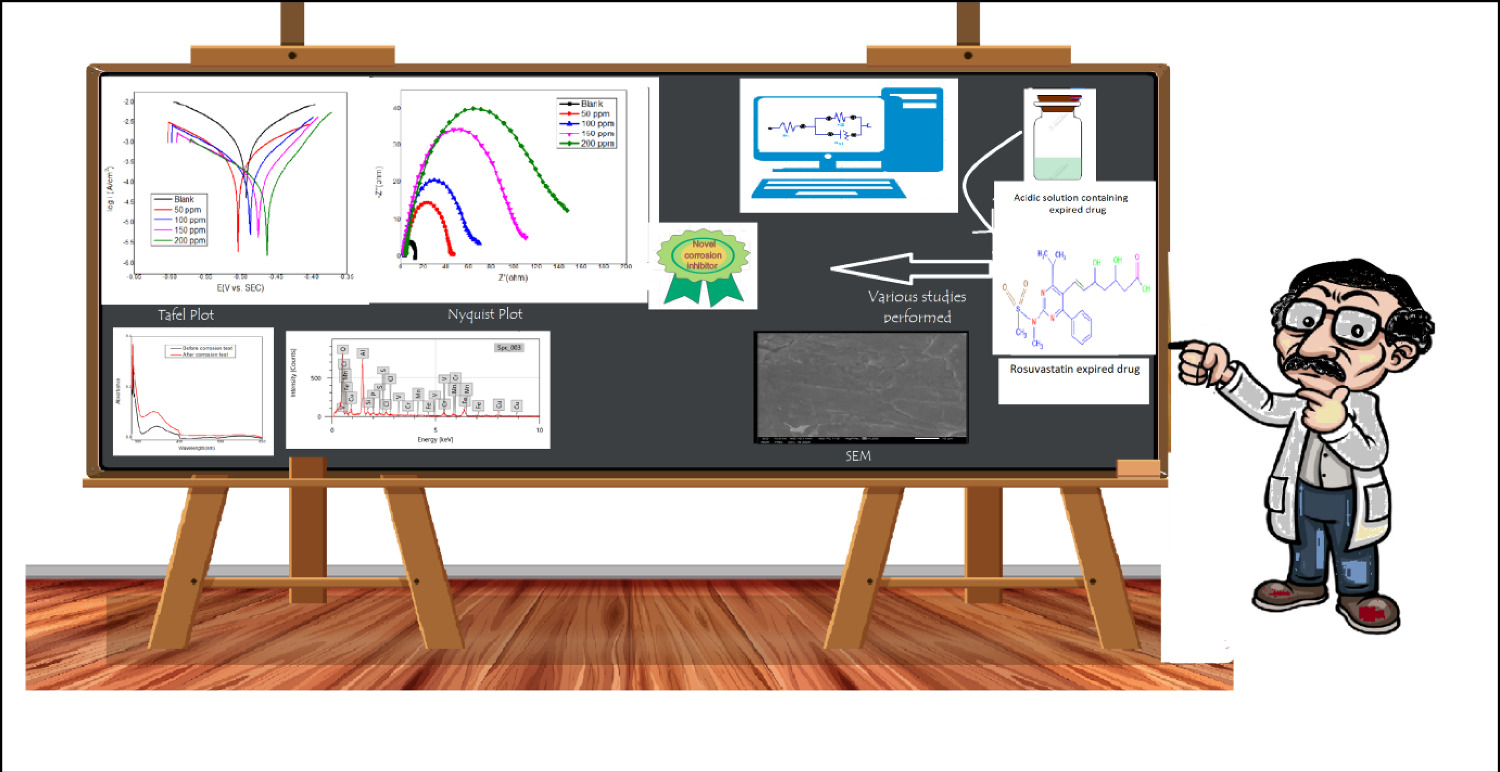https://doi.org/10.1140/epjp/s13360-025-06561-0
Regular Article
Utilization of expired drug Rosuvastatin as an efficient corrosion inhibitor for mild steel in 0.5 M H2SO4: a step toward the sustainability
1
Division of Chemistry, Department of Applied Sciences, Chandigarh University, Mohali, India
2
National Research Nuclear University “MEPhI”, Kashirskoe Shosse 31, 115409, Moscow, Russian Federation
3
Chemical & Materials Engineering, New Uzbekistan University, 54 Mustaqillik Ave, 100007, Tashkent, Uzbekistan
4
Faculty of Chemistry, National University of Uzbekistan, 100034, Tashkent, Uzbekistan
5
Physics and Chemistry, Western Caspian University, 1001, Baku, Azerbaijan
6
Department of Chemistry and Research Centre, Government Digvijay Autonomous Postgraduate College, 491441, Rajnandgaon, Chhattisgarh, India
7
Department of Research and Incubation, Rayat bahra university, Chandigarh - Ropar NH 205, 140103, Mohali, Punjab, India
Received:
21
February
2025
Accepted:
17
June
2025
Published online:
1
July
2025
Expired pharmaceutical compounds offer a sustainable approach to reduce metal deterioration in acidic environments. This study investigates the use of expired rosuvastatin as a corrosion inhibitor for mild steel in 0.5 M hydrochloric acid. In this study, expired rosuvastatin is investigated for its effectiveness in lowering mild steel corrosion in 0.5 M hydrochloric acid. In this study, the effectiveness of inhibition, adsorption behavior, and potential eco-friendly application of expired rosuvastatin to industrial processes was investigated. In addition to electrochemical impedance spectroscopy (EIS), weight loss methods, and surface analysis techniques were basically used to investigate the effectiveness. At an optimal concentration of 200 ppm, the maximum inhibition efficiency reached 87.80% in weight loss tests, 88.93% in EIS, and 98.04% in PDP measurements. The adsorption of rosuvastatin on the mild steel surface follows the Langmuir isotherm, suggesting monolayer formation. Using expired rosuvastatin as a corrosion inhibitor offers significant environmental benefits by repurposing pharmaceutical waste that would otherwise contribute to pollution. This approach reduces the need for traditional chemical inhibitors that may be harmful to the environment. Additionally, by minimizing waste and promoting sustainability, it supports green economy principles and reduces the carbon footprint associated with manufacturing new inhibitors.
Supplementary Information The online version contains supplementary material available at https://doi.org/10.1140/epjp/s13360-025-06561-0.
Copyright comment Springer Nature or its licensor (e.g. a society or other partner) holds exclusive rights to this article under a publishing agreement with the author(s) or other rightsholder(s); author self-archiving of the accepted manuscript version of this article is solely governed by the terms of such publishing agreement and applicable law.
© The Author(s), under exclusive licence to Società Italiana di Fisica and Springer-Verlag GmbH Germany, part of Springer Nature 2025
Springer Nature or its licensor (e.g. a society or other partner) holds exclusive rights to this article under a publishing agreement with the author(s) or other rightsholder(s); author self-archiving of the accepted manuscript version of this article is solely governed by the terms of such publishing agreement and applicable law.





